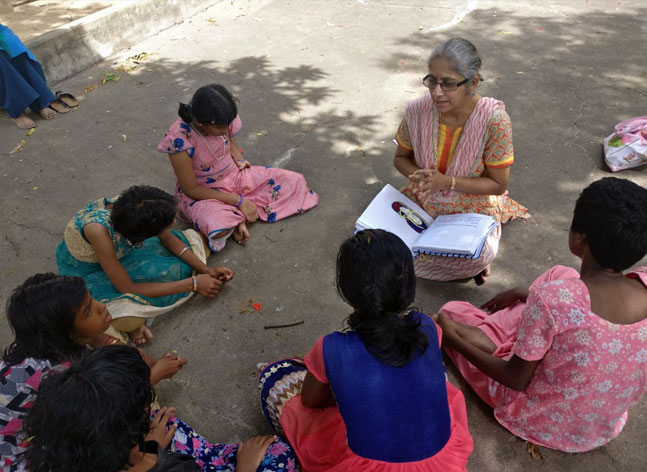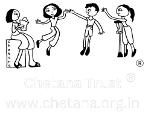
What We Do
Chetana Charitable Trust was set up in 2004 in Chennai, India. The organization is committed to increasing the availability of environments and opportunities that promote learning and development for groups at risk such as children with disabilities and first generation learners. The main objective of the Trust is to raise awareness and support the development of solutions to socially relevant issues, particularly in the areas of health & education.
Currently we have three thrust areas. The first is in addressing the quality of vision care in children who have other disabilities. 1000 children received direct benefit from the project over the ten year intensive phase. Our work directly benefited eight organizations in the city and their staff and changed the nature of the professional training programs as well as service delivery. The learning from this project was incorporated into professional training, parent support and sensitization of policy makers. The project has brought about system level change in professional preparation and services to children throughout the country. Today, Chetana is part of National Consultations on health care services and has contributed to manuals created for ophthalmologists and rehabilitation professionals in India.
The second thrust area is the development of Assistive Technology solutions for people with disabilities. We partner with CREATE, the Assistive Technology lab at IIT, Madras, Enability Foundation, and the national network of AT solutions, feeding the engineers with current issues and supporting testing of their products. Our contribution is also in creatingWe support the development of training modules for parents and teachers. Through our awareness programs, we enable people with disabilities to carry the message of the importance of AT in the lives of people with disabilities to major decision makers in the field
The third area of thrust is developing literacy in children with print disabilities. This includes children with vision impairment and blindness, intellectual impairment, autism, learning disabilities and impairments of attention and perception. We create adaptations for children with cerebral palsy who cannot turn pages of normal books and make materials they can hold and illustrated cards they can use to retell or discuss the stories. We use language leveling to help children with low language levels but normal social and emotional intelligence to read books their peers enjoy by writing it in simple language. We create tactile illustrations for children with visual impairment, with attention deficit, or with intellectual impairment as a way to help them attend to key features and better understand and enjoy stories.
The project began with developing materials that promote early literacy skills including tactile story books, lending learning materials to early intervention and early learning centers and working with publishing houses to develop solutions to creating accessible reading materials. When we reviewed our contribution, we realized that the impact on the children was not as deep as we would like. We decided to center our efforts in three areas – develop and test the efficacy of accessible books with children in Chennai, develop methods of guiding families and teachers in developing literacy skills in children with disabilities and working on raising awareness and skills among professionals engaged in creating literacy materials and among the general community in contributing to supporting literacy in children with print disabilities.
 What We Do
What We Do
